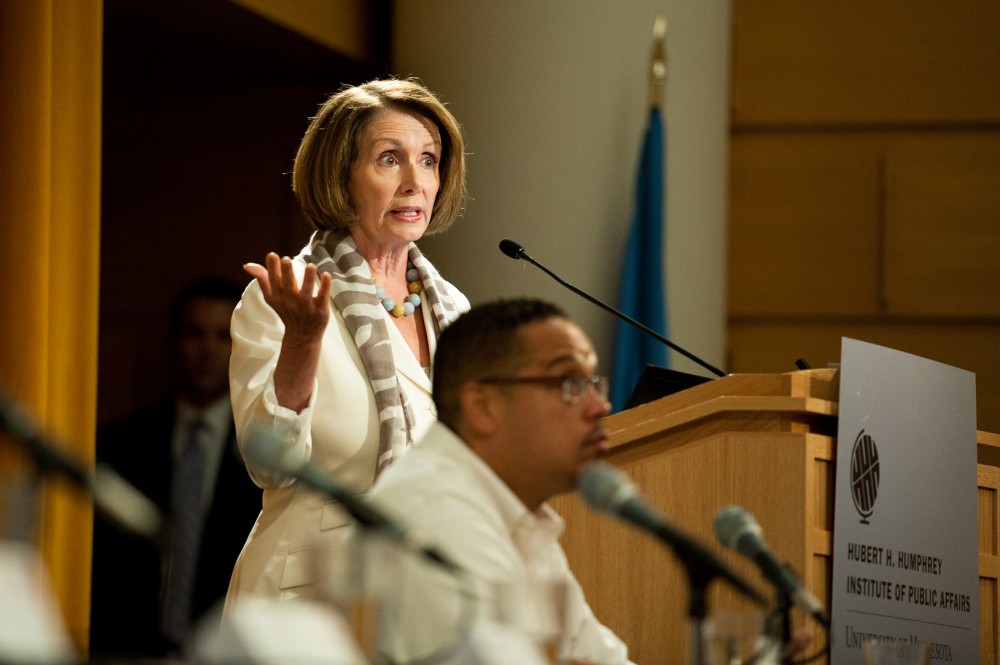State and national leaders gathered Wednesday afternoon on the University of Minnesota campus to address the African famine.
The forum, which brought to campus House Democratic leader Nancy Pelosi, U.S. Reps. Tim Walz and Keith Ellison and USAID head Raj Shah, coincided with the announcement of $23 million more in aid from the U.S.
The Humphrey School of Public Affairs and Ellison, who served as moderator, hosted the discussion.
The famine, which has been said to be the worst humanitarian crisis of this generation, has garnered global media attention. Ellison stressed the importance of working together to combat hunger and to ensure that U.S. foreign aid strategies promote inclusion and generosity.
âÄúThis forum is focused on what we can do as a community to help these people in need,âÄù he said. âÄúItâÄôs our business because so many of our neighbors have loved ones from this region.âÄù
Al-Shabab militants have control of much of the area, a problem forum attendees brought up. Shah said this political context is a âÄúroadblockâÄù for aid workers and that it was the main human element in the crisis. But he also pointed to the increase in âÄústabled democratic governanceâÄù in Africa. âÄúSo we see a path of real progess here,âÄù he said.
The fiscal instability in the U.S. budget has also been a concern for aid workers and lawmakers.
Pelosi denied charges that the U.S. only donates to countries from which it would benefit economically. âÄúAllevation of poverty and eradication of disease helps for a stronger global community,âÄù she said.
Ellison echoed that sentiment at the forum, which was led by democrats.
âÄúWe need a political constituency to support us when we argue for foreign assistance. And if you wonâÄôt speak up and say âÄòI want my representative to fight for this,âÄô then it makes it that much more difficult for us to fight for it.âÄù
Many attendees also expressed concern over regulations the U.S. puts on groups who want to send funds to the region.
Shah said while there are U.S. terror laws that might prohibit certain groups from sending money, President Obama has some solutions to this problem, like waivers.
âÄúThis latest adaptation will allow for groups to be more aggressive in aiding the humanitarian crisis,âÄù Shah said.


